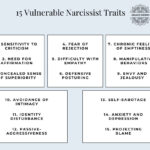Conquer Fear Of Public Speaking Through Emotional Intelligence
Were you the kind of student who hated it when your teacher asked you to do a presentation in front of the whole class? Do you still avoid making your voice heard or sharing your opinion in front of a group of people? If you’re tired of holding back from expressing yourself and want to improve your public speaking skills, you’ve come to the right place. I will give you some tips on how to conquer fear of public speaking through emotional intelligence!
Firstly don’t be too hard on yourself, fear of public speaking is extremely common. According to the National Social Anxiety Center, fear of public speaking effects about 73% of the population. Evolutionary psychologists explain that this comes from our primordial roots. Back in the prehistoric era, being rejected by your community or group of people endangered your survival.
When you are speaking to a group of people you fear being rejected, which is the same fear that our ancestors feared. So your brain reacts in a similar way and enters the fight, flight or freeze response. Your body gets filled with anxiety and adrenaline, and you either feel like you want to run away, or fear that your brain will freeze during your public speaking.
So what can you do to conquer the fear of public speaking? Let’s explore how the 5 pillars of emotional intelligence can help us overcome our fear, improve our communication skills, and deliver excellent public speeches.
Using emotional intelligence to overcome fear of public speaking
1. Self-awareness

Self-awareness is the first pillar of emotional intelligence and it’s the step to conquer fear of public speaking. Many people are not even aware that they fear public speaking. They reject every public speaking opportunity that comes their way by justifying themselves. So they end up making up excuses to hide behind them.
Being aware of your anxiety when you think of public speaking gives you the opportunity to work through it. Avoiding your fears only makes them stronger, while facing your fears, helps you overcome them.
Self-reflection is an effective way to observe your fears, thoughts and emotions. It allows you to acknowledge your fear of public speaking and address it. Mindfulness Cognitive Behavioral Therapy is a powerful tool you can use to change your automated thinking patterns, to conscious positive thoughts which empower you along the way.
Also, emotional intelligence coaching can help you break through your fears and overcome any setbacks holding you back from being your best self. Being guided and supported throughout your journey ensures that you keep moving forward and not fall back to old thinking patterns.
Related article: Why Is Emotional Intelligence So Important? | How Does Self Awareness Help Boost Your Confidence?
2. Self-regulation
Self-regulation is the second pillar of emotional intelligence. The ability to manage your emotions is a powerful skill that enables you to conquer your fear of public speaking and deliver a great performance.
Great leaders and world known public speakers also experienced fear of public speaking. For example Gandhi, Hilary Clinton, Renée Zellweger, Nicole Kidman, Thomas Jefferson, Abraham Lincoln among many others….. However, they all had strategies to manage their emotions to conquer their fear instead of letting it take over.
Breathing exercises, mindfulness meditation, and yoga are all practices which teach you how to manage your emotions and strengthen mental resilience.
3. Motivation

Motivation is the third pillar of emotional intelligence. At times, you will have moments when you try to talk yourself out of your public speaking event. So knowing how to motivate yourself will ensure to keep you moving forward and successfully conquer the fear of public speaking through the power of emotional intelligence.
Visualizing yourself and imagining how you would feel after you deliver a successful public speech, will help you stay motivated. Visualization cultivates positive emotions which empower you to overcome your fears and motivate you to challenge yourself.
Growth happens when you get uncomfortable and challenge yourself. If you decide to stay comfortably in your comfort zone, you won’t push yourself to the next level. Personal growth is a vital human need which leads to fulfillment and satisfaction. People who are stuck in their life and inhibit their own personal growth end up feeling apathetic, bored and lacking purpose.
4. Empathy
The 4th pillar of emotional intelligence is the ability to connect with other people by putting yourself in their situation. Empathy is a very useful skill which helps you write the perfect speech for your audience. This ensures that your target audience are engaged during your public speaking event and enjoy your performance.
Knowing that your audience will enjoy your performance empowers you to conquer the fear of public speaking. It’s an important element in people who have excellent communication skills. People with high levels of empathy have a way of connecting with people.
So naturally, if you develop this ability and prepare your speech with the audience in mind, it makes you feel more confident that you won’t be rejected by the people you are speaking to.
5. Social skills

These 4 pillars mentioned above make up the 5th pillar of emotional intelligence – social skills. Developing strong social skills transforms you into a better communicator. If you feel that you lack social skills, don’t worry. These skills can be learned by practice and by taking small steps to challenge yourself.
It’s never too late to start working on your social skills to reduce social anxiety and conquer the fear of public speaking. If you’re an introvert and would like to feel more comfortable when you’re around people, try joining a group with common interests. For example a book club, or a voluntary organization which shares the same motives as you.
If you had unpleasant past experiences in a social setting, it doesn’t mean that all social experiences will have the same outcome. By trying new things in a different context, you will prove to yourself that when you connect with people who share your true values, you feel uplifted instead of drained out.
Related: Social Awareness & Emotional Intelligence
Powerful Tips to conquer fear of public speaking
Creating your own effective strategy will help you feel more comfortable when you prepare for a public speaking event. Here are some tips which you can find useful to help you crush this fear and thrive in public speaking:
- Take mindful breaths
- Think about your audience
- Reflect about the message that you would like to deliver
- Be authentic and speak your truth
- Prepare in bullet form what you want to highlight and discuss
- Write down positive qualities and skills about yourself
- Remind yourself WHY you are doing this
- Practice it out loud (don’t memorize it)
- Let go of harsh self-criticism and negative thoughts
- Practice self-love and self-compassion
FAQ
Follow these steps to help yourself conquer the fear of public speaking:
-Take mindful breaths
-Think about your audience
-Reflect about the message that you would like to deliver
-Be authentic and speak your truth
-Prepare in bullet form what you want to highlight and discuss
-Write down positive qualities and skills about yourself
-Remind yourself WHY you are doing this
-Practice it out loud (don’t memorize it)
-Let go of harsh self-criticism and negative thoughts
-Practice self-love and self-compassion
Mindful breaths help you shift your focus from negative thoughts and center yourself. When we’re anxious we tend to speak quickly which could make you more anxious during public speaking. So speaking slowly and explaining yourself eloquently helps you stay in control and mindful of what you’re saying.
Fear of public speaking comes from fear of rejection and embarrassment. Past experiences in a public setting could lead a person to fear public speaking. Also, our primordial roots might also be linked to fear of rejection. Back in prehistoric times, our ancestors feared rejection from their community as it endangered their survival.
References:
https://nationalsocialanxietycenter.com/2017/02/20/public-speaking-and-fear-of-brain-freezes/






